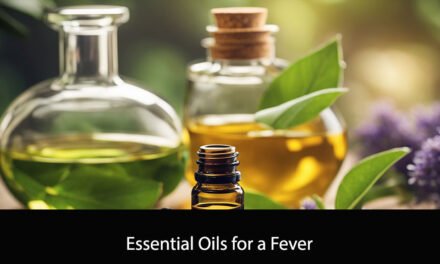Essential oils have been used for centuries to promote relaxation, reduce stress, and improve overall well-being. However, recent studies have shown that certain essential oils may also be effective in helping individuals cope with trauma. Trauma can take many forms, from physical injuries to emotional abuse, and can have long-lasting effects on a person’s mental and physical health.
One of the most promising essential oils for trauma is lavender. Lavender has been shown to have a calming effect on the nervous system, which can help reduce anxiety and promote relaxation. This makes it an ideal choice for individuals who have experienced trauma and are struggling with symptoms such as panic attacks, insomnia, and irritability. Other essential oils that may be helpful for trauma include bergamot, frankincense, and chamomile.
Understanding Trauma

Trauma is a distressing experience that overwhelms an individual’s ability to cope. Trauma can be caused by a variety of events, including natural disasters, accidents, physical or sexual assault, or witnessing violence. Trauma can have a significant impact on an individual’s physical and emotional well-being.
Physical Impact
Trauma can have a variety of physical symptoms, including headaches, fatigue, and muscle tension. Trauma can also affect an individual’s immune system, making them more vulnerable to illnesses. Trauma can also cause changes in an individual’s sleep patterns, making it difficult to fall asleep or stay asleep.
Emotional Impact
Trauma can have a significant impact on an individual’s emotional well-being. Trauma can cause an individual to feel a range of emotions, including fear, anxiety, anger, and sadness. Trauma can also cause an individual to feel detached from others and their surroundings.
It is essential to seek support and treatment if you or someone you know has experienced trauma. Essential oils may be a helpful addition to a comprehensive treatment plan. However, it is important to note that essential oils should not be used as a substitute for professional medical care.
Essential Oils: An Overview
What Are Essential Oils?
Essential oils are highly concentrated plant extracts that are obtained through a process of steam distillation or cold pressing. They are called “essential” because they contain the essence of the plant’s fragrance and flavor. Essential oils have been used for thousands of years for their therapeutic properties, and are commonly used today in aromatherapy, massage, and other natural health practices.
How Do Essential Oils Work?
Essential oils work by interacting with the body’s limbic system, which is responsible for regulating emotions, memory, and other functions. When inhaled or applied topically, essential oils can have a profound effect on mood and can help to reduce stress, anxiety, and other symptoms of trauma.
Different essential oils have different therapeutic properties, and can be used for a variety of purposes. Some essential oils are known for their calming and relaxing effects, while others are energizing and uplifting. Some are anti-inflammatory, while others are antiseptic or anti-bacterial.
Overall, essential oils can be a powerful tool for managing the symptoms of trauma, and can help to promote emotional and physical healing. However, it is important to use them safely and responsibly, and to consult with a qualified healthcare practitioner before using them as part of a treatment plan.
Benefits of Essential Oils for Trauma

Essential oils are highly concentrated plant extracts that have been used for centuries for their therapeutic benefits. When it comes to trauma, essential oils can be a powerful tool for promoting healing and recovery. In this section, we will explore the benefits of essential oils for trauma, including stress reduction, promoting sleep, and enhancing mood.
Stress Reduction
One of the most significant benefits of essential oils for trauma is their ability to reduce stress. Trauma can cause a wide range of physical and emotional symptoms, including anxiety, depression, and insomnia. Essential oils such as lavender, bergamot, and ylang-ylang have been shown to have a calming effect on the nervous system, helping to reduce stress and promote relaxation.
Promoting Sleep
Sleep disturbances are a common symptom of trauma, and getting a good night’s rest is essential for healing and recovery. Essential oils such as chamomile, valerian, and sandalwood have been shown to promote relaxation and improve sleep quality. These oils can be diffused in the bedroom or added to a warm bath before bedtime to promote restful sleep.
Enhancing Mood
Trauma can have a significant impact on mood, leading to feelings of sadness, anger, and hopelessness. Essential oils such as lemon, peppermint, and frankincense have been shown to have a mood-enhancing effect, helping to promote feelings of happiness and well-being. These oils can be diffused throughout the day or added to a carrier oil for topical application.
In conclusion, essential oils can be a valuable tool for promoting healing and recovery after trauma. By reducing stress, promoting sleep, and enhancing mood, essential oils can help individuals to manage their symptoms and improve their overall well-being.
Specific Essential Oils for Trauma
When it comes to using essential oils for trauma, there are a few specific oils that have been shown to be particularly effective. Here are three essential oils that we recommend:
Lavender
Lavender essential oil is one of the most popular essential oils for calming and relaxation. It has a gentle, soothing scent that can help to reduce feelings of anxiety and stress. It can also promote feelings of calm and relaxation, making it a great choice for those who are struggling with trauma-related symptoms.
To use lavender essential oil, you can add a few drops to a diffuser or mix it with a carrier oil and apply it topically. You can also add a few drops to a warm bath to help promote relaxation.
Chamomile
Chamomile essential oil is another great choice for those who are dealing with trauma-related symptoms. It has a calming, relaxing scent that can help to reduce feelings of anxiety and stress. It can also promote feelings of calm and relaxation, making it a great choice for those who are struggling with trauma-related symptoms.
To use chamomile essential oil, you can add a few drops to a diffuser or mix it with a carrier oil and apply it topically. You can also add a few drops to a warm bath to help promote relaxation.
Ylang Ylang
Ylang ylang essential oil is a great choice for those who are dealing with trauma-related symptoms. It has a sweet, floral scent that can help to promote feelings of calm and relaxation. It can also help to reduce feelings of anxiety and stress, making it a great choice for those who are struggling with trauma-related symptoms.
To use ylang ylang essential oil, you can add a few drops to a diffuser or mix it with a carrier oil and apply it topically. You can also add a few drops to a warm bath to help promote relaxation.
Overall, these three essential oils are great choices for those who are dealing with trauma-related symptoms. They can help to promote feelings of calm and relaxation, reduce feelings of anxiety and stress, and provide a sense of comfort and support.
How to Use Essential Oils for Trauma

Aromatherapy
Aromatherapy is one of the most popular ways to use essential oils for trauma. It involves inhaling the essential oils through the nose or mouth, which stimulates the olfactory system and triggers a response in the brain. Aromatherapy can be done in a variety of ways, including:
- Diffusing: Add a few drops of essential oil to a diffuser and let it disperse throughout the room.
- Inhalation: Add a few drops of essential oil to a bowl of hot water and inhale the steam.
- Direct Inhalation: Apply a few drops of essential oil to a tissue or cotton ball and inhale the scent.
Some of the best essential oils for aromatherapy include lavender, chamomile, bergamot, and frankincense.
Topical Application
Another way to use essential oils for trauma is through topical application. This involves applying the essential oils directly to the skin, usually diluted with a carrier oil like coconut or jojoba oil. Topical application can be done through massage, compresses, or simply rubbing the oil onto the affected area.
Some of the best essential oils for topical application include peppermint, eucalyptus, rosemary, and tea tree oil.
Bath and Body Care
Using essential oils in bath and body care products is another effective way to use them for trauma. This can be done by adding a few drops of essential oil to a bath, or by using products like lotions, creams, or body washes that contain essential oils.
Some of the best essential oils for bath and body care include ylang-ylang, geranium, clary sage, and sandalwood.
It’s important to note that essential oils should be used with caution and always diluted properly before use. If you have any questions or concerns about using essential oils for trauma, consult with a healthcare professional before use.
Safety Considerations
Possible Side Effects
As with any form of therapy, there are potential side effects to using essential oils for trauma. While essential oils are generally considered safe when used properly, some people may experience adverse reactions. Possible side effects include skin irritation, allergic reactions, headache, nausea, and dizziness.
It’s important to note that some essential oils are phototoxic, meaning they can cause skin damage or sensitivity when exposed to sunlight or UV rays. Examples of phototoxic oils include bergamot, lemon, lime, and grapefruit. It’s important to avoid using these oils on areas of the skin that will be exposed to sunlight.
Precautions
To minimize the risk of adverse reactions, it’s important to use essential oils safely. Here are some precautions to keep in mind:
- Always dilute essential oils before applying them to the skin. Use a carrier oil such as coconut oil or jojoba oil to dilute the essential oil.
- Avoid using essential oils on broken or irritated skin.
- Do a patch test before using a new essential oil. Apply a small amount of diluted oil to the inside of your wrist and wait 24 hours to see if any reaction occurs.
- Keep essential oils out of reach of children and pets.
- Store essential oils in a cool, dark place away from sunlight and heat.
When to Consult a Professional
If you’re new to using essential oils or have a pre-existing medical condition, it’s a good idea to consult a healthcare professional before using them. Essential oils can interact with certain medications and may not be safe for everyone.
If you experience any adverse reactions to essential oils, discontinue use immediately and seek medical attention if necessary. It’s important to use essential oils safely and responsibly to reap their potential benefits for trauma.
Frequently Asked Questions

What are some blended essential oils that can help with trauma?
Blended essential oils can be a great way to address trauma. Some popular blends include lavender, bergamot, and ylang-ylang, which can help to calm the nervous system and reduce anxiety. Other blends that may be effective for trauma include frankincense, sandalwood, and vetiver.
What are some effective ways to use essential oils for childhood trauma?
Childhood trauma can be particularly challenging to address, but essential oils can be a helpful tool. Some effective ways to use essential oils for childhood trauma include diffusing oils in the child’s bedroom, using a rollerball blend on the bottoms of their feet, or incorporating oils into a calming bath.
What are some essential oils that can help with PTSD?
PTSD can be a debilitating condition, but essential oils may be able to help. Some essential oils that may be effective for PTSD include lavender, frankincense, and bergamot. These oils can help to reduce anxiety, promote relaxation, and improve sleep.
How can essential oils be used for dissociation?
Dissociation can be a challenging symptom of trauma, but essential oils may be able to help. Some oils that may be effective for dissociation include frankincense, sandalwood, and vetiver. These oils can help to ground the individual and promote feelings of safety and security.
What are some ingredients in Trauma Oil?
Trauma Oil is a popular blend that can be effective for addressing physical trauma. It typically contains three ingredients: arnica, St. John’s wort, and calendula. These ingredients can help to reduce pain, inflammation, and bruising.
What are some ways to release trauma from the body without essential oils?
While essential oils can be a helpful tool for addressing trauma, there are other ways to release trauma from the body. Some effective methods include therapy, meditation, yoga, and exercise. These practices can help to promote relaxation, reduce anxiety, and release tension from the body.





